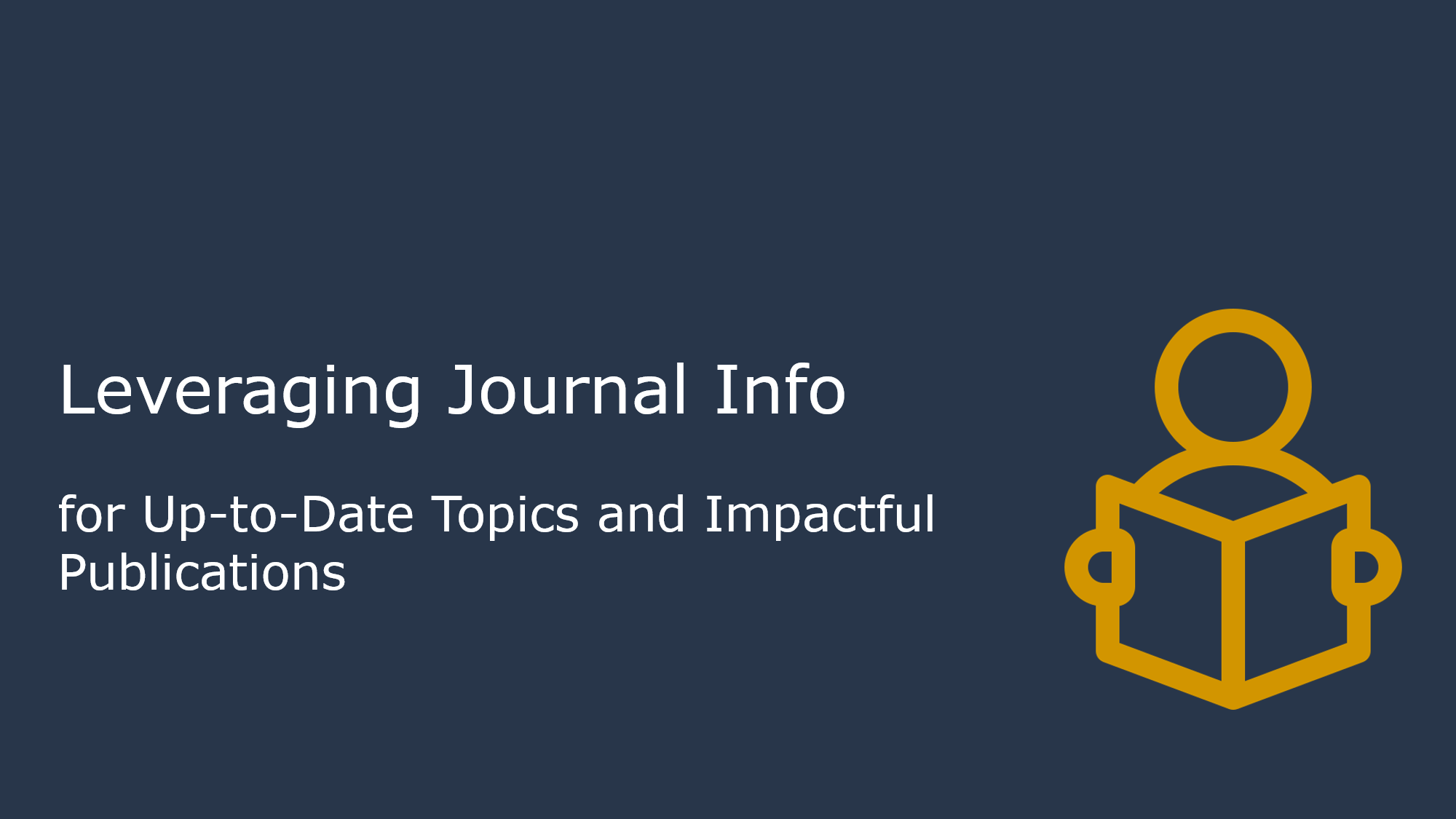By F. Jabutay
In today’s fast-paced world of information sharing, keeping abreast of the latest advancements in any field is vital for researchers, scholars, and academics. Journals are a wealth of cutting-edge research and knowledge, making them indispensable resources for staying informed on current topics and producing impactful publications. This article will delve into the different ways journal information can be utilized to keep up-to-date and significantly contribute to research output.
The Importance of Staying Current
As we look ahead to the future, researchers must remain up-to-date with the latest trends, findings, and breakthroughs in their respective fields. The continuous innovation and discovery we are experiencing means that new information is constantly emerging that can reshape existing paradigms and inform future research directions. Failure to stay current may result in missed opportunities, outdated methodologies, and inaccuracies in research. Therefore, researchers need to remain vigilant and proactive in their pursuit of knowledge and advancement.
Navigating the Landscape of Journals
Journals play a pivotal role in disseminating new knowledge to the academic community. With many journals available across diverse disciplines, researchers must carefully curate the sources they rely on for up-to-date information. Here are some strategies for navigating the journal landscape effectively:
1. Identify Reputable Journals: Begin by identifying reputable journals in your field. Look for journals with high-impact factors, solid editorial boards, and a history of publishing impactful research. The journals in this website are more likely to provide reliable and cutting-edge information → https://www.scimagojr.com/index.php
2. Specialized vs General Journals: Consider whether specialized or general journals are more suitable depending on your research focus. Specialized journals often delve deep into specific topics, while general journals may offer broader insights across multiple areas.
3. RSS Feeds and Email Alerts: Many journals offer RSS feeds and email alerts for newly published articles. Subscribing to these alerts can help you receive immediate updates on the latest research in your field.
4. Professional Networks: Engage with your academic and professional networks. Collaborators, mentors, and peers can recommend journals and articles that align with your research interests.
Using Journal Information Effectively
Once you’ve established a strategy for accessing up-to-date journal information, leveraging this knowledge effectively for producing impactful publications is essential. Here’s how:
1. Topic Selection: Stay current with your field’s latest trends and emerging issues. Journals can provide insights into what topics are gaining traction and what areas need further exploration.
2. Literature Review: Regularly reviewing articles from reputable journals helps you identify gaps in the existing literature. This can guide your research toward addressing unanswered questions and advancing knowledge.
3. Methodology Refinement: Journals often publish studies highlighting novel research methodologies and techniques. By staying informed about these advancements, you can enhance the rigour and effectiveness of your research methods.
4. Building on Previous Work: Research doesn’t exist in a vacuum. Journals provide the context for your work by showcasing previous studies. Building on established research positions your work within the broader academic conversation.
5. Citing Up-to-Date Sources: Citing recent articles from reputable journals lends credibility to your work and demonstrates that you are engaging with current scholarship.
Contributing to Impactful Publications
While staying current is essential, contributing impactful publications is equally significant. Here are some strategies to enhance the impact of your work:
1. Novelty and Significance: Strive for novelty and significance in your research. Journals are likelier to publish work that breaks new ground or offers novel insights into existing problems.
2. Strong Methodological Foundation: A robust methodology lends credibility to your findings. Ensure that your research methods are well-designed and thoroughly explained.
3. Clear Communication: Communicate your findings clearly and concisely. Effective communication makes your research accessible to a broader audience.
4. Collaboration: Collaborating with researchers from different disciplines can lead to innovative approaches and broader perspectives on your research topic.
5. Engage with Reviewers: Address feedback from reviewers thoughtfully. Constructive revisions can strengthen your manuscript and improve its chances of acceptance.
